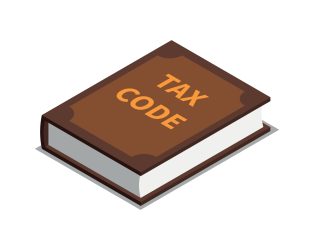
The 500T tax code in the UK is a temporary, non-cumulative code used by HMRC when they lack information.
They use this code to assign a standard tax code, usually in new employment, complex tax situations, or as an emergency measure.
HMRC’s official definition of the ‘T’ in 500T is “Your tax code includes other calculations to work out your Personal Allowance”.
It is important you understand what this code means, and how it will affect your tax obligations.
When is the 500T tax code used?
The 500T code is typically used in three situations:
- New employment – if your employer does not have the necessary information to determine your tax code, e.g. a P45, they might use this code initially. The measure will remain until HMRC receives the required information to assign a permanent tax code
- Complex tax situations – this is for individuals who have multiple sources of income or who are navigating unique tax situations themselves. The code allows HMRC to handle complicated tax situations where standard tax codes may not apply
- Emergency tax code – the code can function as an emergency measure; it is a stop-gap solution until the data needed is gathered
What are its implications?
As the 500T tax code directly influences how your Income Tax is calculated, it presents a few implications for taxpayers that need to be considered.
These include:
Non-cumulative tax calculation
- Under the code, each pay period is treated independently
- Your earnings and tax paid in previous periods within the tax year are not considered when the tax for the current period is calculated
Risk of over or underpayment
- The 500T code can lead to tax payment discrepancies
- Overpayment might occur if your tax-free allowance is underestimated in the calculations
- Underpayment can happen if the allowance is overestimated
It is crucial to remember that if you are under the 500T code, that you keep an eye on your tax deductions and liaise with HMRC or your employer if there is any missing information to update.
The 500T tax code is only temporary but it can still affect your tax obligations if you do not provide the right information.
For advice on how to navigate and understand the 500T tax code, contact us today.

